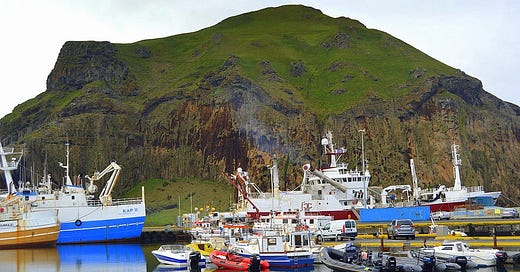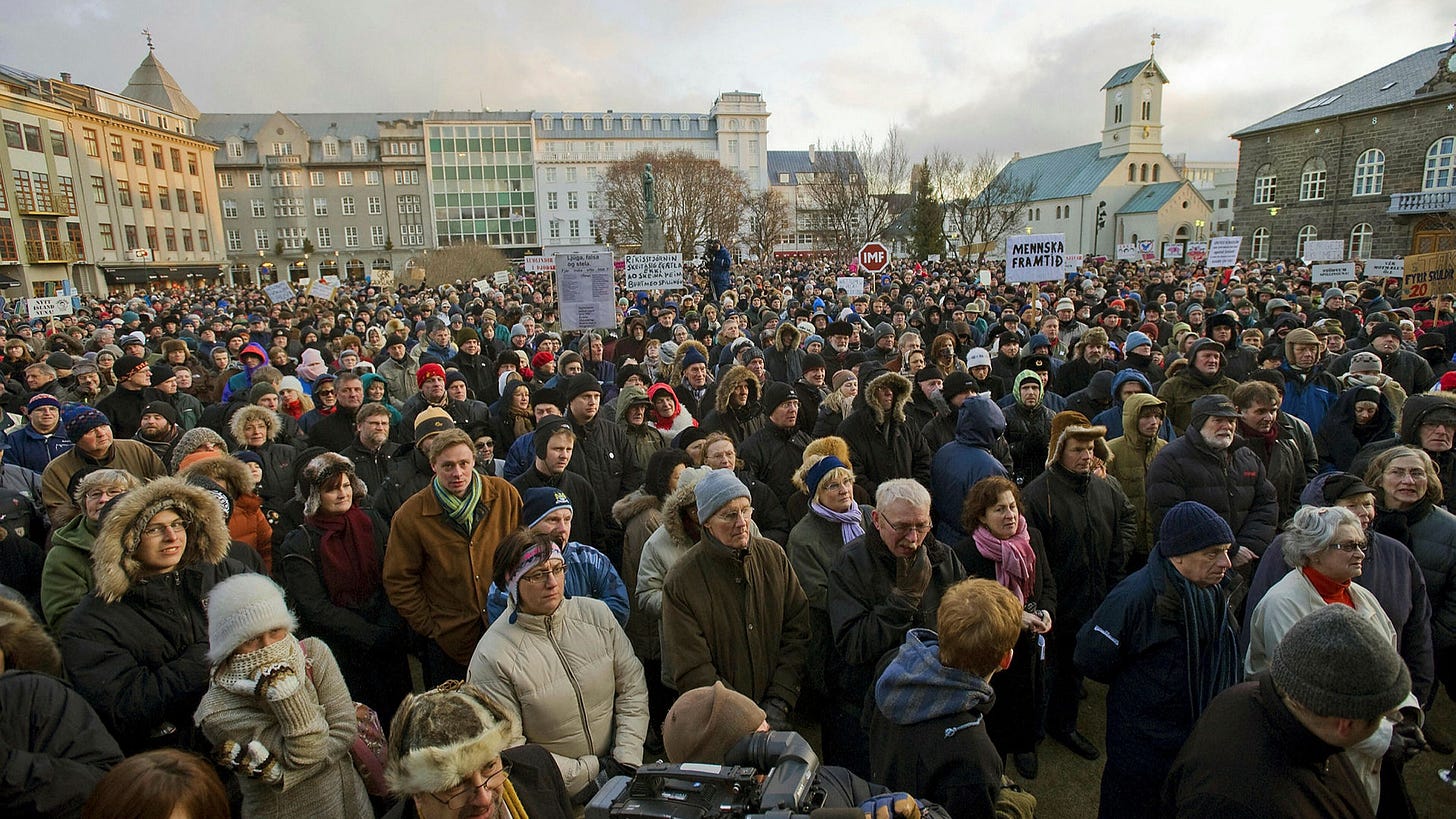For 1,100 years Iceland was a sleepy island of fishermen.
Then something changed.
Welcome new readers! If you’re reading this but haven’t subscribed you can subscribe here:
Change
Fish are an abundant resource. Especially for a small island like Iceland.
As a result it’s tricky to make much money fishing. Excess money attracts more fishers.
Fishermen, therefore, make ends meet but little else. It’s a hard way to make a living.
This shaped Iceland for 1,100 years.
Then came the change.
In 1979, after a poor year, the Icelandic government introduced a fishing quota- a cap on fish caught.
Each fisherman got a percentage of that quota and so a set number of fish they could catch.
They made the quotas tradable. This meant fortunes appeared overnight.
It also meant that the quotas found their way into the hands of the best fishermen. A quota is most valuable to those who can fulfil it with the least effort.
Fewer people now supplied the same amount of fish.
This created, for the first time, financial abundance in Iceland. People had money and time to kill.
Salmon to suits
The youth of Iceland flocked to foreign lands.
They used their time and wealth to gain degrees and PHDs.
The country then found itself in a strange situation.
Their two main trades were fishing and aluminium smelting. But to a bright and, now, highly educated youth these brutal industries didn’t appeal.
So they turned to investment banking.
Up and down the country people ditched fishing gear for suits.
What followed was remarkable.
They boomed. For the next 30 years they could do no wrong.
They borrowed cheap money from abroad. Leant it to each other. Bought houses and cars. A strong economy boosted the currency. So their foreign debt got cheaper.
They were effectively paid to borrow money.
Their glance turned abroad and they began buying anything. From German banks to English football teams.
They couldn’t lose.
Until they did.
What, in hindsight, was a classic bubble, came apart in 2008-2011.
All three of the country’s major banks failed, owning assets 11 times the countries GDP.
Suddenly the whole country was underwater. Asset prices tumbled. People with £500k houses now had £1.5m mortgages.
They fell back to earth.
Foolish
What’s interesting about Iceland’s story, and why I’m telling it, is the narrative during their go go days.
The bankers told themselves it was due to their own superiority. Due to the innate strengths of the Icelandic people. It’s in our genes. We’re simply smarter than the rest.
Really they overpaid for everything. It worked during the currency’s meteoric rise but failed once that faltered.
There’s a great lesson in there. And a relevant one for a startup founder.
When things are going well it’s easy to rationalise that you’re a genius. Success is taken for granted. I’m simply better.
But that’s dangerous. Every great fall is fuelled by hubris. It’s fuelled by someone fooling themselves.
“The first principle is that you must not fool yourself and you are the easiest person to fool.” - Richard Feynman
That’s the real challenge here. Not to fool yourself. You’ll bombard with noise along the way. Praise, criticism, endless opinions. Sure, they will be some substance in there, but no one will give you the whole picture. What’s really going on. That’s down to you.
My Week in Books📚
Boomerang by Michael Lewis
So good. Love everything Michael Lewis writes. No one cuts through the noise quite like him. He wrote the Big Short about banks failing, this one’s about countries failing.
Silence by Thich Nhat Hanh
A humbling read. We need silence. A moment alone with our thoughts. So hard to find these days but always available.
The Scout Mindset by Julia Galef
I was initially put off by the name but it’s a fantastic book. The scout mindset in question is looking for the truth rather than protecting your beliefs. The Icelandic investment bankers could have benefited.
I’ll be updating the books I’ve read this year here. Any recommendations? Let me know! See 2021’s books here.
A Final Thought 💡
“It’s only hubris if I fail”
- Julius Caesar





